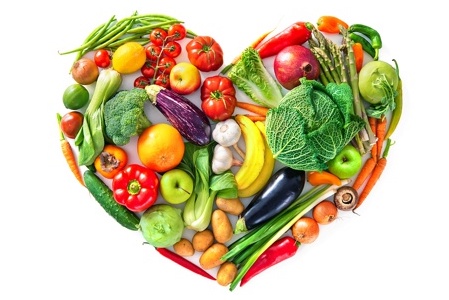With increasing awareness of health issues, veganism has seen a meteoric rise in popularity in recent years. Veganism is an approach that seeks to eliminate all forms of animal exploitation and cruelty - not only from our food choices but throughout all aspects of our lives. Many people turn to veganism for various reasons, such as reducing their carbon footprint or ethical concerns. But there are also numerous health advantages that come with adopting this lifestyle.
In this article, we'll uncover some unexpected health advantages of going vegan. Here, we'll examine the benefits of plant-based nutrition, how a vegan lifestyle can impact mental health and the environment, the best sources of vegan protein and which supplements can help vegans optimize their health. Whether you are already vegan or just considering making the switch, read on to discover why adopting this lifestyle could be the key to improving your wellbeing.
I. Plant-Based Nutrition
Recent studies have demonstrated the beneficial effects of a plant-based diet in preventing and managing chronic diseases. A well-rounded vegan diet is packed with essential nutrients like protein, fiber, vitamins, and minerals - all essential for optimal health.
One common misconception about veganism is that it leads to nutritional deficiencies. However, when a balanced vegan diet that incorporates various fruits, vegetables, legumes, whole grains, nuts and seeds is followed correctly, your body can get all of the essential nutrients it requires.
Vegans may worry about vitamin B12, which is typically found in animal products. While a vegan diet may not provide enough of this vital nutrient, fortifying plant-based products like plant milk or supplements is easy to remedy the situation. Furthermore, calcium - essential for bone health - should also not be overlooked since it can be obtained through vegan-friendly sources like leafy greens, tofu, and sesame seeds.
In addition to correcting nutrient deficiencies, numerous studies have demonstrated that a plant-based diet can significantly reduce the risk of chronic illnesses like cardiovascular disease, type 2 diabetes, and certain cancers.
Harvard School of Public Health conducted a study that revealed people on plant-based diets had an overall 32% lower risk for heart disease compared to those who consumed meat. Another large-scale survey of over 200,000 participants also demonstrated that veganism was linked with an 18% reduced risk for colorectal cancer.
Furthermore, a study conducted by Adventist Health Study-2 discovered that vegans had an overall 15% reduced risk of cancers compared to those who ate meat.
These findings are not just limited to chronic diseases, but have been observed in age-related conditions such as Alzheimer's disease. A study by the National Institute on Aging revealed that a diet rich in fruits, vegetables and nuts was linked with lower rates of cognitive decline among older adults.
In conclusion, vegan diets provide all essential nutrients for optimal health and the advantages of veganism extend beyond nutrient intake. In the next section, we will look into another aspect of veganism - its impact on mental wellbeing and the environment.
II. Vegan Lifestyle

Becoming vegan is more than just changing what you eat; it's about adopting a lifestyle that seeks to minimize animal exploitation and cruelty in all aspects of our lives. Additionally, this lifestyle has significant positive effects on both mental health and the environment.
Mental health is often disregarded when discussing veganism, yet research has demonstrated a connection between plant-based eating and reduced symptoms of anxiety, depression and stress. A study conducted by Physicians Committee for Responsible Medicine revealed that participants who followed a plant-based diet for 18 weeks reported significant improvements in mood, anxiety symptoms and overall quality of life compared to those who didn't.
Another study, which focused on vegans and vegetarians, discovered both groups experienced lower levels of stress and anger than meat eaters. This could be attributed to the nutrient-dense plant-based foods vegans consume as well as its ethical alignment which may positively influence overall mindset.
Adopting a vegan lifestyle can have significant environmental benefits, as animal agriculture is one of the primary causes of deforestation and greenhouse gas emissions. A report from UNEP noted that livestock sectors contribute more greenhouse gas emissions than all transportation combined.
Vegans can reduce their environmental footprint while conserving valuable resources. A study conducted by the University of Oxford discovered that switching to a vegan diet could reduce an individual's carbon footprint by up to 73%. This is because animal agriculture requires vast amounts of land, water and energy for production of meat and dairy products.
Furthermore, adopting a vegan lifestyle can help reduce food waste - an issue of great concern in our society. According to the Food and Agriculture Organization of the United Nations, one-third of all food produced globally is wasted. By opting for plant-based foods instead, vegans take an important step toward living a zero-waste lifestyle.
In conclusion, adopting a vegan lifestyle can have many advantages for mental health and the environment. In the following section we will investigate the top sources of vegan protein and how vegans can ensure they meet their protein needs.
III. Vegan Protein Sources
When looking for vegan proteins, there are plenty of sources available that offer both high quality and affordable options.
One common worry among those considering veganism is how to get enough protein. Although protein is essential for our overall wellbeing and helps us feel satisfied, it doesn't need to be difficult to obtain as some may think. Plant-based diets can easily provide sufficient amounts of protein with proper planning and variety in choices if done properly.
One of the best and most widely consumed sources of plant-based protein are beans and legumes. Popular examples include chickpeas, lentils, black beans, and kidney beans. Not only do these provide ample amounts of protein but they also supply fiber, minerals, and vitamins essential for optimal health.

Another excellent vegan protein source is nuts and seeds. Almonds, pumpkin seeds, and peanut butter are all vegan sources of this essential nutrient. Not only that but they make for great snack options as well; providing quick energy when needed.
Soy products are an excellent source of protein. Tofu and tempeh, both made from soybeans, are versatile enough to use in various recipes and packed full of essential nutrients like protein and fiber. Soy products provide ample sources of these vital proteins!
Other plant-based foods like quinoa, chia seeds and nutritional yeast can also be utilized to increase protein intake. Not only are these high in protein but they also deliver other health-promoting nutrients to our bodies.
It is essential to remember that vegans, like all other individuals, have a daily recommended amount of protein they should consume. Adults generally need around 0.8 grams per kilogram of body weight; therefore, someone weighing 70 kilograms should aim to consume 56 grams of protein daily.
If a vegan needs or prefers to supplement their protein intake, several vegan protein powders are available on the market. Products made from pea protein, rice protein or hemp protein can all be great options for those struggling to consume enough of this vital nutrient. Likewise, quality vegan supplements that contain plant-based sources such as soy, pea or brown rice offer great solutions for those with higher demands for protein consumption.
In conclusion, vegan diets can provide enough protein with plant-based foods. Furthermore, plant-based diets promote optimal health by providing essential nutrients that animal products typically lack. In the next section, we'll look into which vegan supplements vegans should consider taking to maximize their health benefits.
IV. Vegan Supplements
While a nutritious vegan diet can provide all of the essential nutrients for optimal health, there may still be some vitamins and minerals that may not be present due to the absence of animal products in our meals.
Vitamin B12, an essential nutrient for nervous system health and red blood cell production, should not be lacking from vegans' diets. Because B12 mainly comes from animal products, vegans can benefit from taking a supplement to ensure adequate intake. This is especially pertinent for pregnant or breastfeeding mothers since lack of B12 can have serious repercussions for the infant's wellbeing.
Vitamin D may be lacking in vegan diets. This nutrient is essential for healthy bones and it's mainly synthesized through exposure to sunlight; however, those living in areas with limited exposure may not receive adequate amounts, placing vegans at greater risk since vitamin D is typically found in animal products. To ensure adequate levels of this essential nutrient, consider taking a vitamin D supplement or consuming fortified plant-based milks or juices as sources.
Iron is essential for optimal health, and vegans may become deficient in this nutrient - especially women who tend to experience iron deficiencies. Fortunately, many plant-based sources of iron exist. In addition, fortified cereal or cooking in an iron skillet as well as supplements like Vitamin C can help increase iron absorption.
Omega-3 fatty acids are another essential nutrient necessary for human health, and vegan sources include ALA (alpha-linolenic acid). Although flaxseed, chia seeds, and hemp seeds may provide enough ALA, some individuals may require an additional supplement like marine algae omega-3 supplements to ensure adequate intake of DHA/EPA. It's best to speak with a qualified healthcare practitioner for personalized advice regarding omega-3 intake.
Vegetarians are especially at risk of developing an iodine deficiency, which could negatively affect thyroid health. Plant-based sources of iodine include sea vegetables such as nori, kelp or kombu; however adequate iodine intake is possible through fortified plant-based milks and salt that has been specifically fortified with iodine.
In conclusion, while following a vegan lifestyle can offer numerous health advantages when done correctly, it's essential to pay attention to certain nutrients that may be lacking on this diet. Supplementing with vitamins B12, D, Iron, Omega 3 fatty acids and iodine may be necessary in certain circumstances - consult your healthcare practitioner or registered dietitian before beginning any new supplements for optimal wellness on this vegan journey.
Conclusion
In conclusion, veganism can be incredibly healthy! A well-planned vegan diet provides essential nutrients and may reduce the risk of chronic illnesses while improving mental wellbeing. Furthermore, veganism promotes an ethical lifestyle which reduces animal exploitation or cruelty free living while simultaneously having a minimal impact on the environment.
Still, in order to reap the maximum health benefits from veganism, a well-planned and varied vegan diet is necessary; supplements may even be needed to address potential nutrient deficiencies. Research has confirmed that living a vegan lifestyle promotes overall wellness - physical, emotional, and environmental.
No matter if you're an experienced vegan or just starting out, know that you are part of an inspiring community working towards creating a more healthy and sustainable world for us all. So why not give it a shot and reap the many health advantages that a vegan lifestyle has to offer?




